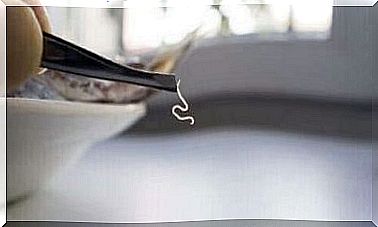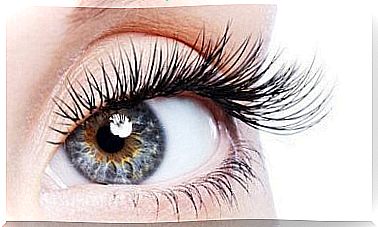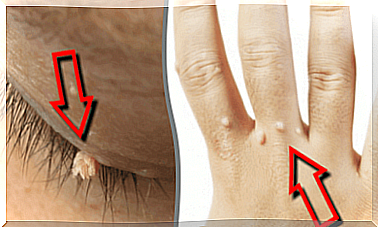Do You Often Bleed Nosebleeds? Find Out Why!
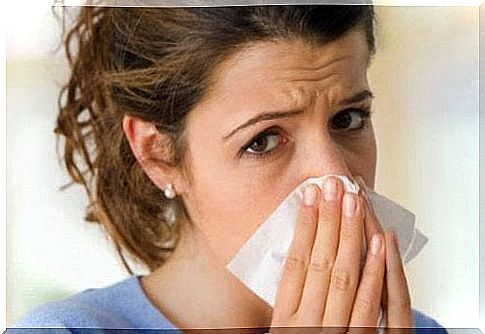
There are many causes of spontaneous nosebleeds. It may be related to rhinitis or dry nose. However, it can also point to other health problems, such as arterial hypertension. If you suffer from regular nosebleeds, you should contact your doctor.
In this article, we will explain some of the most common causes of nosebleeds. In addition, we touch on some aspects that you should keep in mind to prevent more serious diseases.
Why do we bleed nosebleeds?
Some people tend to bleed nosebleeds quite often. The most common explanation for this phenomenon is that the bleeding comes from blood vessels that form the inner part of the nose, the mucous membrane. Usually you only bleed from one nostril, but it is possible to bleed from both at the same time.
When you have a bleeding in this area, the bleeding is usually not that severe. It may be that one has touched that area too much, dry air or allergic rhinitis.
In some cases, it may also be an indicator of uncontrolled arterial hypertension. Our bodies are intelligent organisms and they indicate what problems we may suffer from. This does the body with signals such as light nosebleeds, to lower a high arterial pressure.
We will show you some of the possible reasons why you bleed nosebleeds. We will also show you how you can monitor your health, through how you experience this phenomenon.
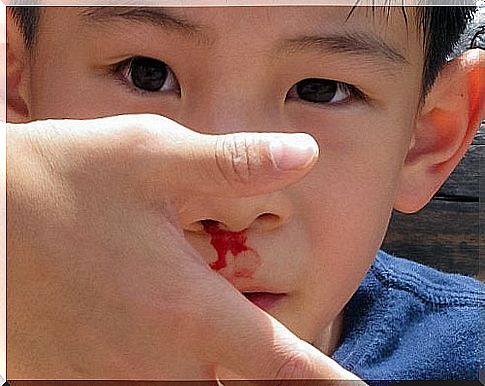
More serious pathologies
You should have your doctor or ear-nose-throat specialist make a diagnosis. It will still be a good idea to have knowledge of which diseases have nosebleeds on the list of symptoms. This allows you to determine the severity of your problem.
Nosebleeds are a symptom of the following diseases:
- Liver disease
- Benign or malignant tumor
- Leukemia
What should you do when bleeding nosebleeds?
When you notice that you are starting to bleed nosebleeds, you should squeeze around the root of the nose with your fingers and lean your head forward. Do not lean your head back, as many recommend. You should not lie down either. Both of these positions will cause you to swallow blood and prevent you from understanding when the bleeding stops.
Wait a few minutes and if the bleeding continues, go to the doctor.
If the bleeding stops, stay away from physical activity for the next few hours. Also, be sure to take a blood thinner or an aspirin. Try not to blow your nose so hard.
When deciding whether to go to the doctor or not, you may also have the following symptoms in mind.
Vitamin C deficiency
One of the most common reasons why you bleed nosebleeds often and if there are no signs of illness is a lack of vitamin C. This vitamin helps to strengthen the capillaries.
You get vitamin C through the following foods:
- Citrus fruits, like lemons with peel on (should be organic).
- Nyper
- Guava
- Berry
- Paprika
- Parsley
- Kiwi
- Broccoli
- Strawberry
You can also take vitamin C supplements. If you take too much, the body easily eliminates it through the urine. So it is not possible to take an overdose of this vitamin.

Schüssler salt
Schüssler salt is a natural remedy that gives you homeopathic doses of minerals. This means that it has no side effects.
There are twelve types of salt that represent different minerals that are naturally found in the body. We also get these minerals through our daily diet. Not only do they provide the body with the minerals it needs, but they also distribute these minerals correctly so that they are in the right place at the right time. When ingested separately, each salt has its specific function. There are some that are especially recommended for nosebleeds:
- Calcium phosphate (Calcium Phosphoricum).
- Potassium Sulphate (Potassium Sulphuricum).
- Iron phosphate (Ferrum Phosphoricum).
You should put two tablets under your tongue, three times a day. Then do not eat, drink or consume products with a strong taste (chewing gum, toothpaste). Take the first dose in the morning, the second in the afternoon and the last in the evening. Continue this treatment for at least one month.
You can contact a homeopath who can make a treatment especially for you and decide how long you should follow the treatment.
